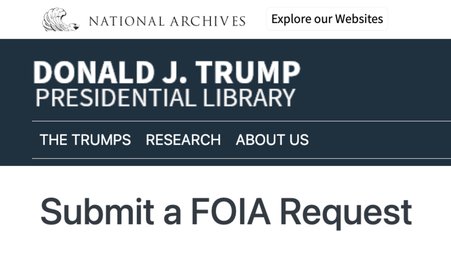
Prohibiting public scrutiny of research isn’t the right response to concerns about academic freedom.
It was a problematic project to monitor social media that came to light thanks to public records. The Department of Homeland Security hired the University of Alabama to research and develop a way to flag possible “pro-terrorists accounts” on social media. Under the project, dubbed “Night Fury,” UA researchers were tasked with developing automatic “risk scores” for social media accounts and delivering lists of accounts identified as pro-terrorist to DHS. DHS ended the contract in 2019, and a later inspector general’s report revealed allegations of potential privacy violations related to Night Fury.
The public learned of UA’s involvement in Night Fury because of a federal Freedom of Information Act request by the Brennan Center. But information like this may never have become public in several states that have passed laws or otherwise restricted public access to research records from public institutions of higher learning.
Most recently, Connecticut considered (but thankfully didn’t pass) a “science secrecy” bill that would have excluded public colleges’ and universities’ research records from the state’s public records law.
These kinds of public records exemptions undermine transparency and government accountability on clearly newsworthy topics. Night Fury is just one example. Concerns about abusive requests and their impact on academic freedom are legitimate, but prohibiting public scrutiny of academic research isn’t the right response.
Science secrecy exemptions undermine the public’s right to know
There’s a long track record of journalists and watchdog groups using public records laws to expose wrongdoing at public academic research programs. For example, in 2015, The New York Times and the consumer health watchdog organization U.S. Right to Know used freedom of information requests to expose Monsanto and others recruiting and incentivizing researchers to lobby in favor of genetically modified foods. Emails obtained through the requests even showed a University of Florida professor using — verbatim — answers drafted by a biotech public relations firm in response to questions about genetically modified food.
Yet under science secrecy exemptions, most records shedding light on research would never be disclosed. Even records showing harassment, misconduct or unethical behavior could arguably also be withheld.
We can protect academic freedom without secrecy
Supporters of science secrecy exemptions argue that freedom of information laws have been weaponized to harass and smear researchers. In one notorious example, climate change skeptics targeted University of Virginia scientist Michael Mann with public records requests, and Mann also faced relentless harassment, a government investigation, purposeful distortions of his research and death threats. More recently, researchers studying online disinformation have been targeted with broad public records requests, congressional subpoenas and online harassment.
Harassment and threats against researchers that rise to the level of criminality are unacceptable and can be prosecuted. But when it comes to responding to the separate issue of abusive public records requests, there are other methods besides science secrecy exemptions to ensure researchers aren’t discouraged from exploring new or controversial ideas.
First, universities and colleges should allocate more staff and money to help researchers gather and review records, rather than placing the burden of responding to records requests on researchers alone. It’s no excuse for academic institutions to say they can’t handle the work of responding to requests. If we let the government use burden as a convenient excuse, we’ll eventually lose access to most records.
In addition, when bad faith requesters misconstrue or purposefully mischaracterize documents, the best response is to correct the record with more information. Colleges and universities should respond to attempts to use public records to gin up controversies by fairly investigating the claims and debunking them when they’re wrong, not firing or disciplining researchers at the first whiff of controversy. Academic freedom should also be safeguarded by strong employment protections.
Finally, existing exemptions to many open records laws for drafts and early deliberations, although themselves subject to abuse, should eliminate the need for additional overbroad exemptions specifically for researchers.
Public records laws allow journalists to inform the public and monitor the government and that includes public colleges and universities. Losing public access to research records from public colleges and universities doesn’t have to be the price we pay to protect academic freedom and researchers.




